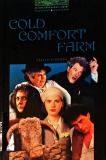Tài liệu Thư viện số
- Cơ khí, Chế tạo máy, Cơ điện tử (648)
- Công nghệ ô tô (227)
- Công nghệ thông tin (1246)
- Kỹ thuật Điện, Tự động hóa (433)
- Điện tử, Viễn thông (423)
- Lịch sử, Địa lý, Du lịch (214)
- Công nghệ Hóa, Môi trường (520)
- Công nghệ May & TKTT (186)
- Kế toán, Kiểm toán (500)
- Quản trị kinh doanh (1135)
- Tài chính - Ngân hàng (53)
- Ngôn ngữ (1926)
- Toán, Lý (374)
- Chính trị, Triết học, Pháp luật (316)
- Thể chất - GDQP (28)
- Văn học, xã hội (483)
- Đồ án, Khóa luận TN (6)
- Luận văn, luận án (3)
- Tài liệu tham khảo khác (825)
Danh mục TaiLieu.VN
- Mẫu Slide Powerpoint
- Luận Văn - Báo Cáo (346704)
- Kinh Doanh Marketing (67778)
- Kinh Tế - Quản Lý (50036)
- Tài Chính - Ngân Hàng (57809)
- Công Nghệ Thông Tin (143292)
- Tiếng Anh - Ngoại Ngữ (47261)
- Kỹ Thuật - Công Nghệ (137309)
- Khoa Học Tự Nhiên (110530)
- Khoa Học Xã Hội (85272)
- Văn Hoá - Nghệ Thuật (54491)
- Y Tế - Sức Khoẻ (177214)
- Nông - Lâm - Ngư (63475)
- Kỹ Năng Mềm (29084)
- Biểu Mẫu - Văn Bản (27862)
- Giải Trí - Thư Giãn (52535)
- Văn Bản Luật (199483)
- Tài Liệu Phổ Thông (409665)
- Trắc Nghiệm Online (213578)
- Trắc Nghiệm MBTI
- Trắc Nghiệm Holland
Cold Comfort Farm
THE DELIRIOUSLY ENTERTAINING "Cold Comfort Farm" is ?very probably the funniest book ever written? ("The Sunday Times," London)?a hilarious parody of D. H. Lawrence's and Thomas Hardy's earthy, melodramatic novels. When the recently orphaned socialite Flora Poste descends on her relatives at the aptly named Cold Comfort Farm in deepest Sussex, she finds a singularly miserable group in dire need of her particular talent? organization.
Thông tin trích dẫn: Cold Comfort Farm. Stella Gibbons. NXB Oxford University Press, 2000.
Vui lòng truy cập địa chỉ sau để download và biết thêm thông tin chi tiết: http://lib.haui.edu.vn/opac80/Detail.aspx?id=1406&f=fulltext&v=Cold+Comfort+Farm
Bạn đọc có thể tìm thêm tài liệu tại Thư viện ĐH Công nghiệp Hà Nội tại địa chỉ: http://lib.haui.edu.vn/opac80/
Cold Comfort Farm is a comic novel by English author Stella Gibbons, published in 1932. It parodies the romanticised, sometimes doom-laden accounts of rural life popular at the time, by writers such as Mary Webb.
Following the death of her parents, the book's heroine, Flora Poste, finds she is possessed "of every art and grace save that of earning her own living". She decides to take advantage of the fact that "no limits are set, either by society or one's own conscience, to the amount one may impose on one's relatives", and settles on visiting her distant relatives at the isolated Cold Comfort Farm in the fictional village of Howling in Sussex. The inhabitants of the farm – Aunt Ada Doom, the Starkadders, and their extended family and workers – feel obliged to take her in to atone for an unspecified wrong once done to her father.
As is typical in a certain genre of romantic 19th-century and early 20th-century literature, each of the farm's inhabitants has some long-festering emotional problem caused by ignorance, hatred, or fear, and the farm is badly run. Flora, being a level-headed, urban woman in the đany tradition,determines that she must apply modern common sense to their problems and help them adapt to the 20th century – bringing metropolitan values into the sticks.
Thông tin trích dẫn: Cold Comfort Farm. Stella Gibbons. NXB Oxford University Press, 2000.
Vui lòng truy cập địa chỉ sau để download và biết thêm thông tin chi tiết: http://lib.haui.edu.vn/opac80/Detail.aspx?id=1406&f=fulltext&v=Cold+Comfort+Farm
Bạn đọc có thể tìm thêm tài liệu tại Thư viện ĐH Công nghiệp Hà Nội tại địa chỉ: http://lib.haui.edu.vn/opac80/
Cold Comfort Farm is a comic novel by English author Stella Gibbons, published in 1932. It parodies the romanticised, sometimes doom-laden accounts of rural life popular at the time, by writers such as Mary Webb.
Following the death of her parents, the book's heroine, Flora Poste, finds she is possessed "of every art and grace save that of earning her own living". She decides to take advantage of the fact that "no limits are set, either by society or one's own conscience, to the amount one may impose on one's relatives", and settles on visiting her distant relatives at the isolated Cold Comfort Farm in the fictional village of Howling in Sussex. The inhabitants of the farm – Aunt Ada Doom, the Starkadders, and their extended family and workers – feel obliged to take her in to atone for an unspecified wrong once done to her father.
As is typical in a certain genre of romantic 19th-century and early 20th-century literature, each of the farm's inhabitants has some long-festering emotional problem caused by ignorance, hatred, or fear, and the farm is badly run. Flora, being a level-headed, urban woman in the đany tradition,determines that she must apply modern common sense to their problems and help them adapt to the 20th century – bringing metropolitan values into the sticks.
Từ khóa: Cold Comfort Farm, Văn học, xã hội, Stella Gibbons
9 p tailieu_haui 21/06/2022 76 0


